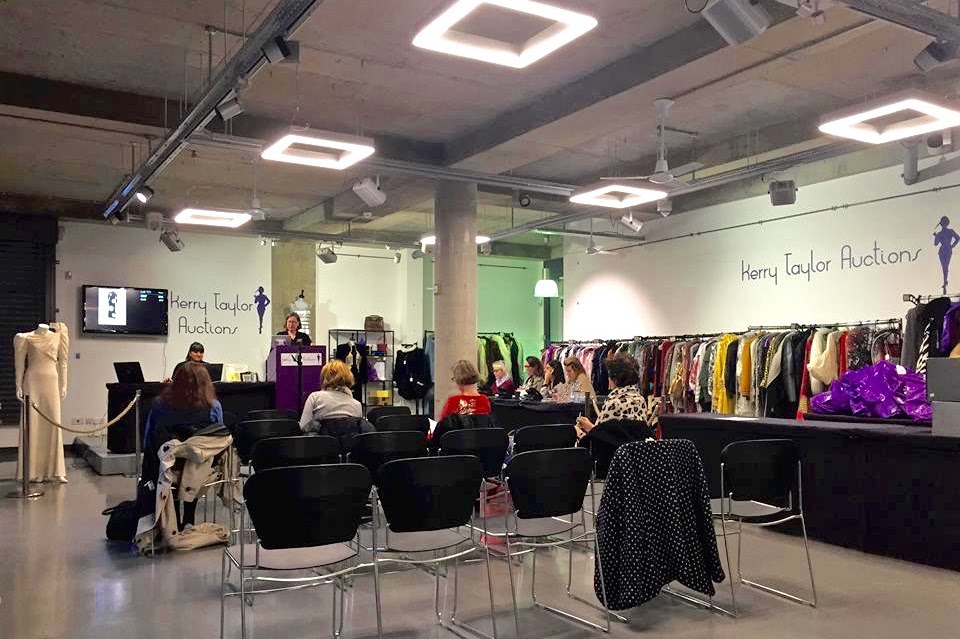While fashion models in the 1960s may not
have had the same following as those immediately recognized today, they
nonetheless represented a similarly desirable lifestyle. Photographed at events, wearing clothing from the most in-demand designers, their often recognizable
physique led them to be scouted not only as models but as actresses too. It was
their budding popularity that cemented the potential influence of models today
– celebrities who do much more than just walk runways.
A number of recognizable names come to one’s
mind when thinking of iconic fashion models of the sixties. Undeniable are
Twiggy, Jean Shrimpton or Veruschka. The later even appearing as herself in the
1966 Michelangelo Antonioni film, Blowup.
The 1960s is arguably the first decade that is seen as cool in contemporary society
and the poster girls of that time were, as they are also today, beautiful,
original and provoking. Teresa Tuszyńska fit this description perfectly and, in
a short haircut calling to mind Twiggy, was to become the British models equal in
a country where fashion seemed more limited than it actually was.
Above and below: Teresa Tuszyńska and Zbigniew Cybulski in Janusz Morgenstern's film "Goodbye, till tomorrow" ("Do widzenia, do jutra," 1960).
http://images3.cinema.de/imedia/7235/2437235,6iGnVQeFyzFlzpCT75_5xujK6tP8G8ttg77ULNENDHqNLCuMe9dOulg7+qzq9tJ7WroLIafwPOXqaJEsd2LS4Q==.jpg
http://bi.gazeta.pl/im/13/fc/c0/z12647443IER,Teresa-Tuszynska-i-Zbigniew-Cybulski-w--filmie--Do.jpg
A model for
Jadwiga Grabowska’s Moda Polska Teresa
Tuszyńska began her career showcasing the formal gowns of the turn of the decade,
and she would continue to walk the runway well into the early sixties. It was, however, after winning a competition, led by Przekrój magazine, that the young model found herself cast alongside the newly-iconic Polish actor, Zbigniew Cybulski, in what would become her most recognizable film role – Margueritte in Goodbye, till tomorrow (“Do widzenia, do jutra,” 1960) directed by Janusz Morgenstern.
Teresa Tuszyńska and other models line up during a runway show by fashion house "EWA" (a precursor to the better known "Moda Polska") atop the balcony of the CDT department store in Warsaw, c. 1959.
http://agnieszkaomodzie.pl/wp-content/uploads/2014/09/Teresa-Tuszyńska-przodem-do-fotografa-podczas-Pokazu-Domu-Mody-Ewa-prekursor-Mody-Polskiej-należący-do-Jadwigi-Grabowskiej-na-tarasie-Centralnego-Domu-Towarowdo-tzw.-CDT-u-Zdjęcie-z-książki-Tetetka-.jpg
On the runway for "Moda Polska" by Leonard Zajączkowski, distributed by WFDiF, Warsaw 1961.
http://www.repozytorium.fn.org.pl/sites/default/files/video/21284/21431_KEYFRAMES_00_01_04_05.jpg
http://www.repozytorium.fn.org.pl/sites/default/files/video/21284/21431_KEYFRAMES_00_01_04_05.jpg
Models for Moda Polska (Tuszyńska second from left), c. 1960.
Modeling a summer set for "Moda Polska," 1961.
http://www.newsweek.pl/g/crop/0/700/newsweek/635990901977279802.jpg
http://www.newsweek.pl/g/crop/0/700/newsweek/635990901977279802.jpg
Modeling for "Moda Polska," c. 1960.
http://68.media.tumblr.com/82967476e0a83f5f2adc2a26d6d4a93d/tumblr_o30ce35XkR1tkt50so1_500.png
http://68.media.tumblr.com/82967476e0a83f5f2adc2a26d6d4a93d/tumblr_o30ce35XkR1tkt50so1_500.png
Tuszyńska at the premiere of "Do widzenia, do jutra" in Atlantic Cinema (Kino Atlantic), Warsaw 1960.
http://ewawojciechowska.pl/wp-content/uploads/2013/10/156549_518470964860914_216978227_n.jpg

On the cover of "Przekrój" magazine, March 1961.
http://iv1.lisimg.com/image/2644370/630full-teresa-tuszynska.jpg
http://ewawojciechowska.pl/wp-content/uploads/2013/10/156549_518470964860914_216978227_n.jpg

On the cover of "Przekrój" magazine, March 1961.
http://iv1.lisimg.com/image/2644370/630full-teresa-tuszynska.jpg
Cybulski, the James
Dean look-alike, who had appeared in Andrzej Wajda’s masterpiece Ashes and Diamonds (1958) was the
embodiment of effortless cool, and any girl worthy enough of his affection had
to be prepared to rival him in both charisma and style. In the film Tuszyńska
plays the daughter of a French diplomat and is voiced by a French-speaking
actress. Her character’s reluctant nature and limited vocabulary paint the
picture of a rich girl that seems a little difficult to handle. Watching the
film, however, one cannot help being struck by the actress’ beauty and poise. Tuszyńska
running along a busy street, in her full skirt, is almost a replica of the
moment when Jean Seberg runs out in her newly bought Dior dress in Jean
Luc-Godard’s film Breathless, which
was released only a month before the Polish film.
Much like
Seberg, Tuszyńska wears outfit combinations that attract in their simplicity yet are perfectly suited to every occasion. The costumes in Goodbye, till tomorrow, designed by
Katarzyna Chodorowicz, rival the fashions sold in Paris at the time and could easily
have even been sourced from that city.
Teresa Tuszyńska, Zbigniew Cybulski and Roman Polański on set of Janusz Morgenstern's film "Goodbye, till tomorrow" ("Do widzenia, do jutra," 1960).
https://img.fdb.cz/galerie/0/0d1178246c3c2392a76054a6102.jpg
On the cover of Show magazine, March 1963.
http://ewawojciechowska.pl/wp-content/uploads/2013/10/DSC02007.jpg
http://ewawojciechowska.pl/wp-content/uploads/2013/10/DSC02007.jpg
Teresa Tuszyńska would appear in a total of twelve films, only to leave the screen abruptly in the early 1970s. Her fate since then is little known and the promising actress, who graced the cover of Show an American arts magazine that called her the most western and versatile of Polish actresses, disappeared from the public eye. Tuszyńska died in March 1997, five years short of her sixtieth birthday, a memory of an actress of undeniable star-potential.
For those of you who speak Polish I would like to recommend a book, which compounds interviews with Tuszyńska's relatives and friends, as well as numerous photographs, to present a retelling of her life: Miroslaw J. Nowik, "Tetetka: Wspomnienia o Teresie Tuszyńskiej," 2013. Polish bookstore, Empik, sells it here.













Post a Comment